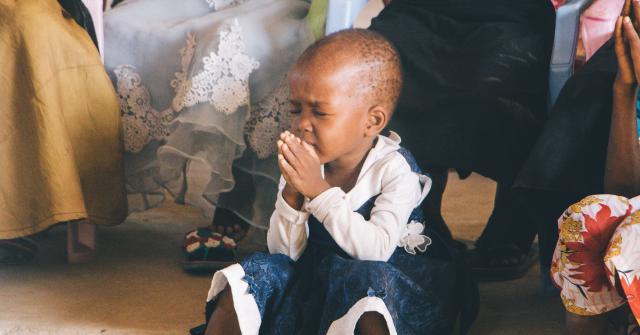
The Context for Discipleship
Mission Central will be initiating more conversations about what it means to be a disciple in the coming years, as we try to bring about a shift in our understanding of mission. We are interested in discipleship because it is fundamentally tied to mission.
What we mean is that we serve a God who is on mission. His love compels him to reach into creation and redeem and reconcile it. In turn, he sends us, his children, to participate in his mission alongside him. As God’s children, we should be filled with the Holy Spirit and love for our father. This inner joy should lead us to proclaim loudly, in word and deed, that the Kingdom is at hand. From this perspective, mission isn’t something we do, it’s an outcome of knowing that we’re loved as a son or daughter. This knowledge contributes to our being healthy vibrant disciples.
So how do we raise up healthy vibrant disciples? Well, that would be through discipleship.
When Mission Central uses the word discipleship, we want to make sure that the context for discipleship is not misunderstood. We can never view discipleship as something that takes place completely outside of the Church, or more specifically, outside of a local worshipping community. The local worshipping community is where disciples experience and learn the Kingdom culture and our family history. It is a place where spiritual gifts and talents are identified and nurtured and most importantly where the disciple gets released into the world to use their gifts and talents for the glory of God. This community plays a role in shaping us into the image of our Lord. This means, of course, that discipleship will only work well if the local worshipping community is healthy.

Mike Goheen, in The Church and Its Vocation, offers a great insight into what makes a local worshipping community a healthy part of the Church. He says, “Ecclesiology is first of all about the church’s identity – who we are and who we serve. And if the biblical story is not the place where our identity is forged, then by default this place will be somewhere else, almost certainly in our cultural story and social location.”
Covid-19 has caused many of us to pause and think about how we’ve been doing things. I see an incredible opportunity for Christians in North America to use this forced pause to consider how we’ve been “doing” church. If our communities are not forming people into a redeeming and reconciling missionary people, then we need ask why?
Expanding on this idea, we could take another cue from Mike and ask two questions. First - Are we making people who look like Jesus? For me, this means that we would have a family resemblance to Jesus. It used to bug me that people I didn’t know would come up to me and say, “You remind me of your father” (or mother – I got both.) As time has passed, my appreciation for my heritage has grown more and more. Do you get mistaken for Jesus? And since we’re talking about the Church, can you connect that likeness to the influence of your community?
And second - Is the way that we “do community” presenting Jesus as King to the world? Certainly, we need to make sure that our worshipping communities are not just “come and see” gatherings, but that they are also “go into all the world” communities. But, more importantly, we need to be a people who, as Paul says, are no longer conformed to the way of the world (Rom 12:2). We have to take the time as a people to discern together how God is calling us to live as a community, a family, in a way that aligns with Kingdom values and our identity as sons and daughters of the King.
It is possible to get the right answers to the above two questions in theory, but we need to do more than understand with our head, we need to embody the answers. In other words, we need to behave like Jesus and live like we’re citizens of his Kingdom. Darrell Guder in the book Missional Church puts it this way. He says,
The aim of the church is not simply to make a given culture more just or more caring, but to shape a people into an alternative way of life. Missional communities representing the reign of God will be intentional about providing the space, the time and the resources for people to unlearn old patterns and learn new ways of living that reveal God’s transforming and healing power.
But this won’t happen without at least one more puzzle piece. We need to be a people on mission with Christ. Mike Goheen, quotes Jürgen Moltman who says, “the mission of Christ creates its own church.” Alternatively, you could say, that if the church doesn’t take mission seriously it’s entirely possible that we could cease to be the church. That seems a little harsh but consider Jesus’ words, "You are the salt of the earth. But if the salt loses its saltiness, how can it be made salty again? It is no longer good for anything, except to be thrown out and trampled underfoot.” (Mt 5:13) Or just as sobering, the words of God to the church of Laodicea, “So, because you are lukewarm – neither hot nor cold – I am about to spit you out of my mouth.” (Rev 3:16) Note the sanction applies to the whole community.
So, in this season of Covid-19, let’s take the time to pause and reflect on whether the identities of our local worshipping communities are being forged by the biblical story or by the culture we live in. There’s a lot at stake, not just for us, but for the world too.







